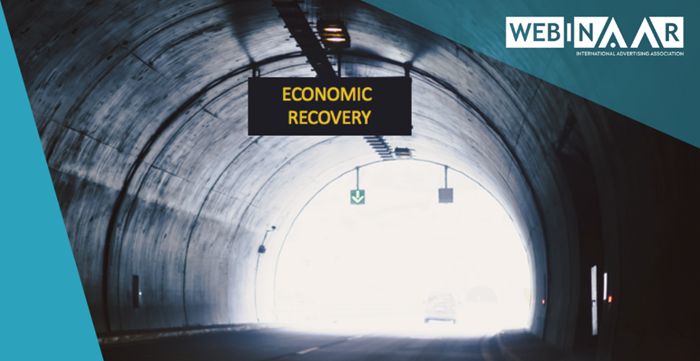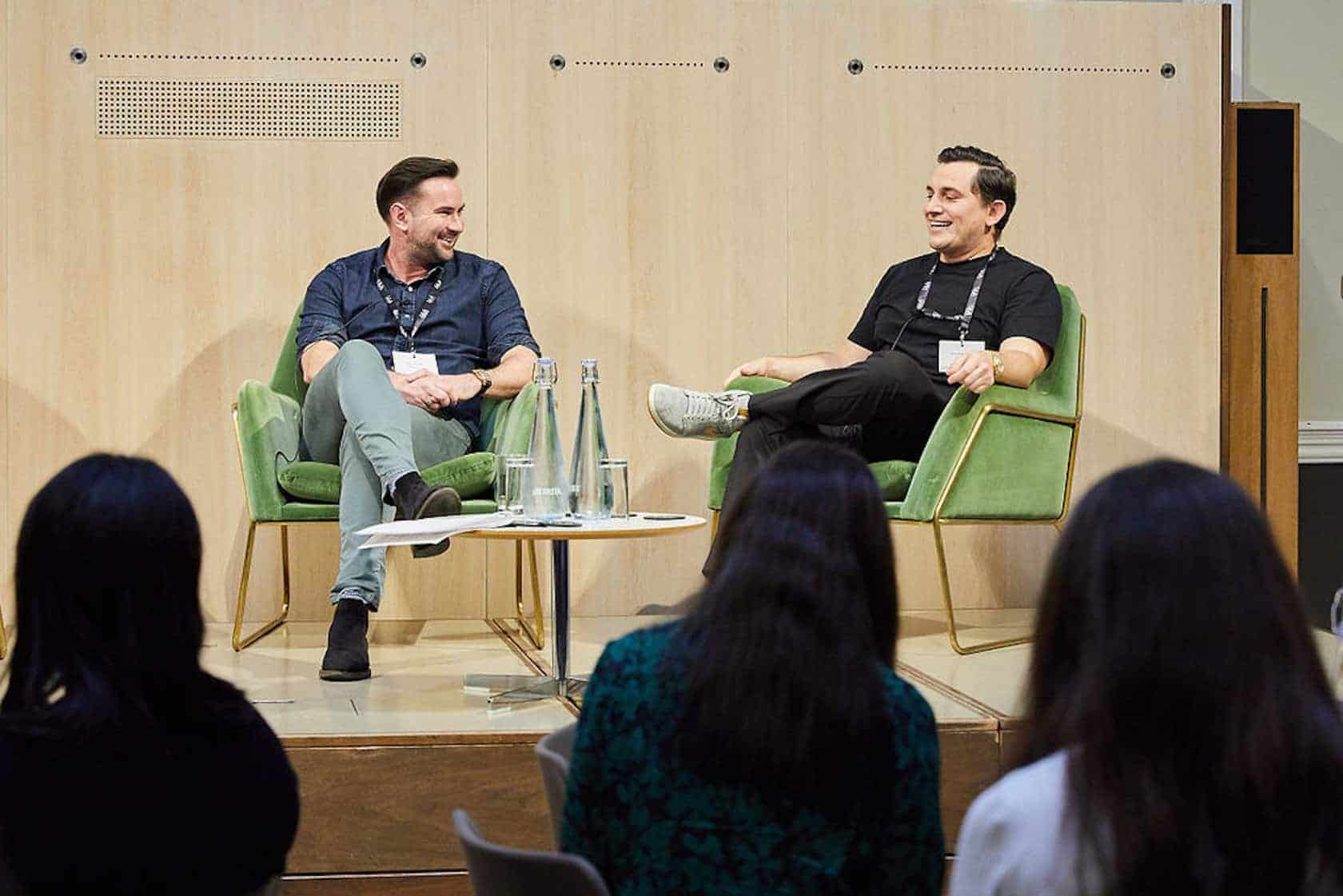Surviving Recession WebInAAr

Date/Time:
Date(s) - May 14, 2020
12:00 am
WebInAAr
COVID-19 brings unprecedented challenges for brands across the globe. With changing consumer priorities, shifting spending habits, decreased sales and supply chain issues all contributing to an uncertain future, many businesses are cutting costs and putting marketing investment on hold.
The fourth session of IAA UK’s webinar series, Advertising through Turbulence, explored how brands can master the delicate balance between cutting costs to survive today and investing to grow tomorrow. Focussing specifically on the next two years, the webinar brought together representatives from across the industry to discuss how brands can navigate through and survive the recession. Jacek Olechowski, President of IAA Poland, hosted the event with panellists Peter Field, Independent Marketing and Advertising Consultant, David Buttle, Global Commercial Marketing Director for the Financial Times, Kerrie Finch, Founding Partner and President of Futurefactor, and Rishi Chande, Global Commercial Director of Captify.
All panellists agreed the smart businesses are those that are ‘holding their nerve’ and continuing to invest in brand marketing rather than pulling all spend. Businesses who invest in brand during a recession come out stronger, and there are numerous examples from the 2008 recession including T-Mobile, Cadbury, Virgin Atlantic and Domino’s Pizza. Lower advertising costs and a hollowing out of the market means brave brands that continue to invest can achieve a greater share of voice for every dollar spent, putting them in a positive position when recovery comes.
But continuing to invest is easier said than done. For many businesses this is a financial crisis impacting revenue and cash flow, so cutting variable costs may be necessary to stay afloat. Convincing CFOs to allocate spend to advertising is a tall order when survival depends on cutting budgets. The panellists discussed practical ways to turn bravery into action, with three key themes emerging:
1. Look to the long term
A key concern is that – as in 2008 – businesses will pull money out of long-term brand defence and put it into driving short-term sales to keep the bottom line looking good, but this is a big mistake. The argument in favour of advertising in recession is about long-term success, and brands that take the short-term hit on poorer numbers will be stronger in recovery. For the next six months media is a buyers’ market, and those coming back into the market next year will find it far more difficult to secure the exposure and coverage available now at bargain rates.
Brands must always find a balance between driving sales for immediate revenue and long-term investment, but the particular characteristics of this recession argue in favour of a tilt towards the long term. Previous pandemic responses indicate that, while the fall into recession is terrifyingly steep, so too is the climb out on the other side. There are already parts of the world coming out of lockdown and seeing explosive demand, so there are reasons to be optimistic.
A brand can be a financial tool, used to reduce customer price sensitivity, to create loyalty and ensure future sales, or to create barriers to entry for competitors. For this reason marketers should think about brand measurement and metrics in financial terms, pinning changes in brand perception and awareness to financial return to help to make the case for investing in long-term brand building. Marketers also need to change the perception of brand from an expansion tool to a defensive mechanism that can be deployed in a downturn to stop competitors moving into the space. According to Board-Brand Rift, a report conducted by the Financial Times in partnership with the Institute of Practitioners in Advertising (IPA), the concept of brand is often absent from board level discussions around investment, so brands need to regain a credible seat at the table.
2. Dig into the data
Many of today’s biggest brands – from Airbnb to Uber – were born out of recession and found success by looking at shifts in consumer behaviour and capitalising on those changes. So, smart brands at this time aren’t just the ones that continue to spend but the ones that spend wisely, based on the right data signals and intelligence around changing behaviours.
Data intelligence tools such as Captify’s Revival Index provide real-time dynamic insight into continually evolving consumer mindsets. They deliver a source of truth to help brands plan multiple scenarios to activate against as the situation unfolds, and give marketers the confidence to invest in advertising at the right time for their vertical. They also allow marketers to uncover and capitalise on audiences they weren’t aware of, or that might not have existed a couple of months ago, such as stay-home consumers with a new interest in baking or gardening.
3. Pivot with purpose
Brands are aware they are standing on quicksand and are looking for firm foundations. Now is the ideal time for consolidation and recalibration; an opportunity to assess what customers want and how brands can differentiate. One thing brands have to hold onto is authenticity, as consumers are looking for truth, trust and relevance at this time. Businesses need to take a leadership position through this pandemic, so now is the time to discover what the brand truly stands for.
One notable development from the pandemic is brands taking a discovery journey into purpose-based marketing. Businesses realise there is an opportunity to be useful and restore foundations, getting back to something people value. But it’s important to do this authentically; brands mustn’t just jump on the bandwagon. While some brands are criticised for token efforts, others such as Philips, which has pivoted into manufacturing ventilators, and LMVH which has switched from producing perfume to hand sanitiser, are making a real difference. If brands are going to lean into the crisis and help, they need to do it genuinely with real commitment and energy, owning the issue and driving debate.








